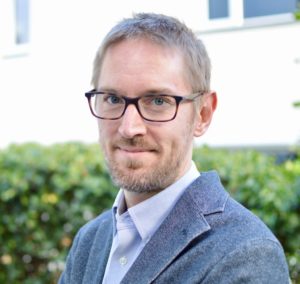|
|
Louis M. Pitet is currently an assistant professor at Hasselt University, working in the Institute for Materials Research (IMO), located in Hasselt, Belgium. Louis’ research interests are broadly concerned with understanding processing–structure–property relationships in complex functional polymer constructs. The group has a keen interest in applying the fundamental relationships that are uncovered to global challenges in polymer science, including reutilizing plastic waste streams, creating smart scaffolds for tissue engineering, and improving processing–manufacturing efficiency with advanced reactors. Louis obtained his Bachelor’s degree in Chemistry from the Colorado School of Mines working with Prof. Daniel Knauss. He went on to obtain a PhD in 2011 in the Chemistry department at the University of Minnesota under the supervision of Prof. Marc Hillmyer, exploring the utility of ring-opening metathesis polymerization in creating functional materials. Louis moved to the Netherlands for a post-doctoral fellowship in the Institute for Complex Molecular Systems at the Eindhoven University of Technology, working with Prof. Bert Meijer. In Eindhoven, Louis helped build a program applying dynamic bonding strategies for the construction of well-defined block polymers. Since 2018, Louis has been leading his research group in Hasselt working with a diverse team currently consisting of 6 PhD students and 1 post-doctoral researcher. More details about the group and research topics can be found at www.uhasselt.be/en/onderzoeksgroepen-en/imo-imomec-afp/people/prof-dr-louis-pitet
You can follow Louis Pitet on Twitter @PitetGroup |
Read Louis’s Emerging Investigator article ‘Fully biobased triblock copolymers generated using an unconventional oscillatory plug flow reactor’
Check out our interview with Louis below:
How do you feel about Polymer Chemistry as a place to publish research on this topic?
I think Polymer Chemistry is a premier journal, well-respected by everyone involved in polymer research. Polymer Chemistry consistently publishes works at the forefront of polymer science, across its diverse range of related topics, and is one of the only journals I routinely browse. The interactions with the editorial board during submission and publication have always been among the best in the publishing world. The speed and professionalism with which our manuscripts are handled is unique and refreshing.
What aspect of your work are you most excited about at the moment and what do you find most challenging about your research?
Polymer scientists currently face a grand challenge to adapt to a global plastic-pollution crisis, with far-reaching implications related to the health of our planet and its diverse communities. Our research is helping to advance polymer materials themselves, and transform the way we make polymers to address these challenges head-on. We do this primarily by developing innovative synthetic technology. This is tremendously challenging, considering the vast diversity of topics and expertise that are involved in polymer science – from synthesis to molecular and physical characterization to processing and reactor design. However, this is also an amazing opportunity to collaborate with an inspiring community of experts across the globe – this is one of the most rewarding parts of the job.
Can you share one piece of career-related advice or wisdom with other early career scientists?
Try to find a topic that is not only high impact, but will also hold your interest for a long time. Also, finding activities that energize you outside the lab/office has been invaluable for me in maintaining efficiency and staying engaged with both colleagues and students.











